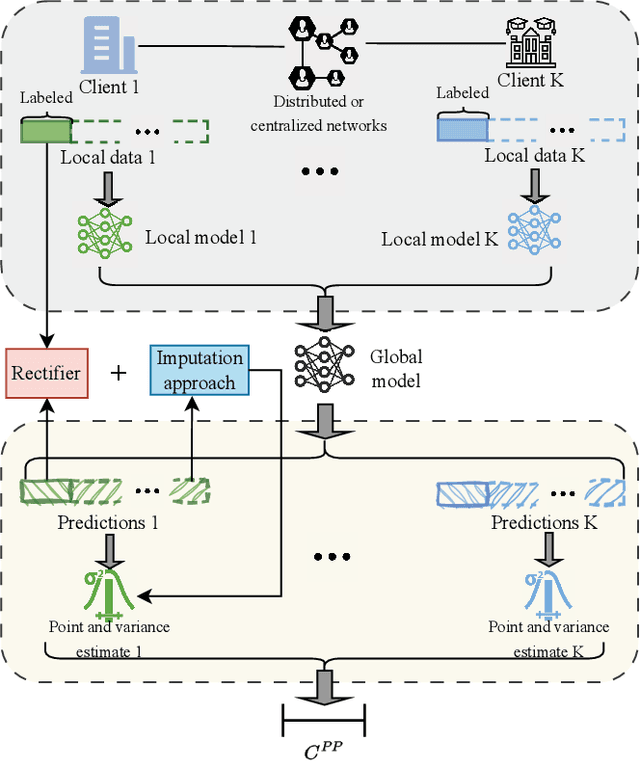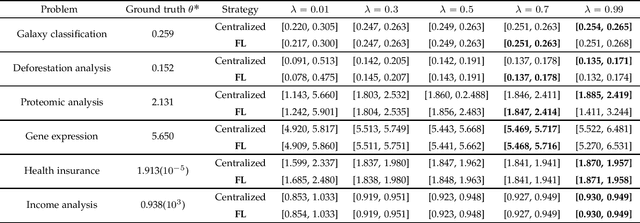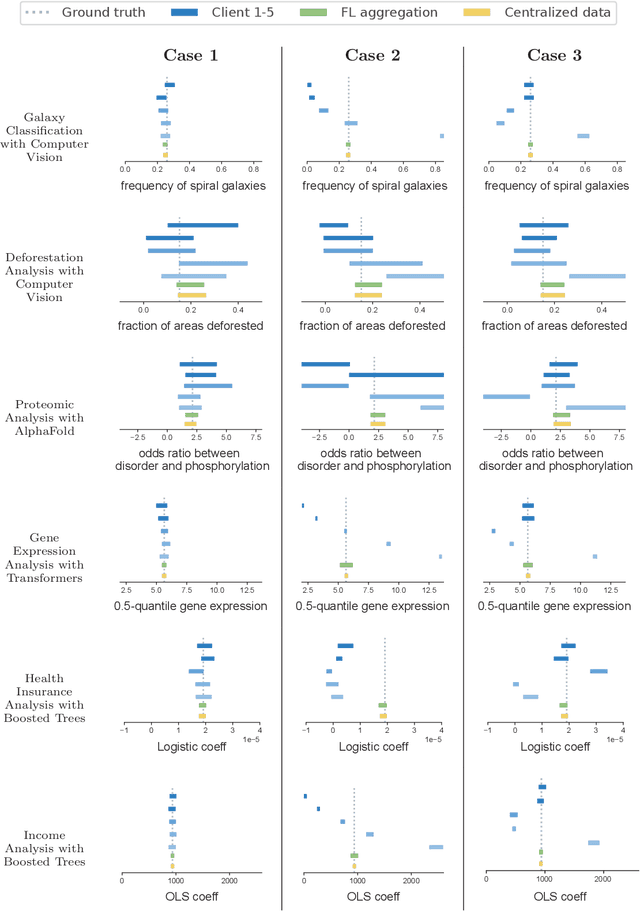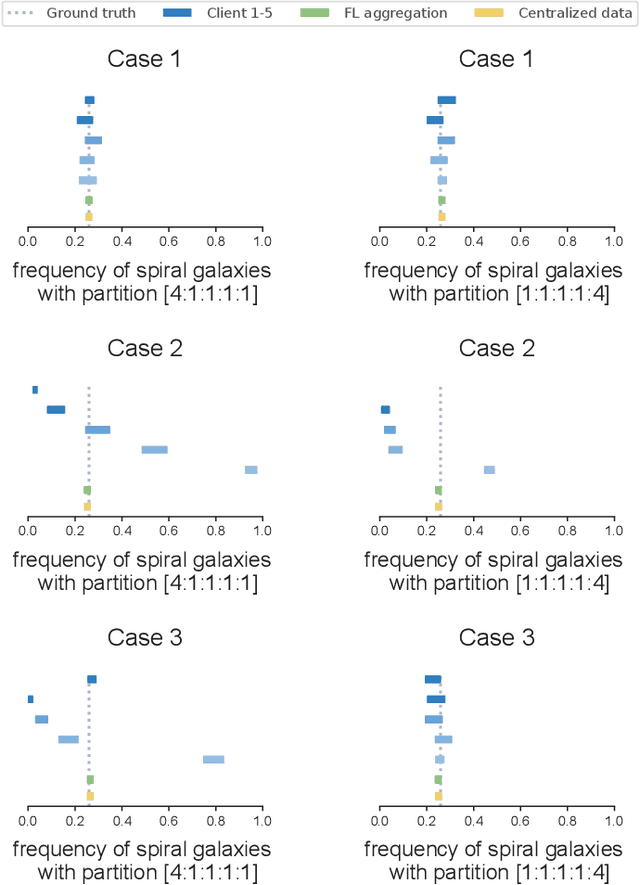Ziqing Wen
Local Gradient Regulation Stabilizes Federated Learning under Client Heterogeneity
Jan 07, 2026Abstract:Federated learning (FL) enables collaborative model training across distributed clients without sharing raw data, yet its stability is fundamentally challenged by statistical heterogeneity in realistic deployments. Here, we show that client heterogeneity destabilizes FL primarily by distorting local gradient dynamics during client-side optimization, causing systematic drift that accumulates across communication rounds and impedes global convergence. This observation highlights local gradients as a key regulatory lever for stabilizing heterogeneous FL systems. Building on this insight, we develop a general client-side perspective that regulates local gradient contributions without incurring additional communication overhead. Inspired by swarm intelligence, we instantiate this perspective through Exploratory--Convergent Gradient Re-aggregation (ECGR), which balances well-aligned and misaligned gradient components to preserve informative updates while suppressing destabilizing effects. Theoretical analysis and extensive experiments, including evaluations on the LC25000 medical imaging dataset, demonstrate that regulating local gradient dynamics consistently stabilizes federated learning across state-of-the-art methods under heterogeneous data distributions.
Breaking Memory Limits: Gradient Wavelet Transform Enhances LLMs Training
Jan 13, 2025



Abstract:Large language models (LLMs) have shown impressive performance across a range of natural language processing tasks. However, their vast number of parameters introduces significant memory challenges during training, particularly when using memory-intensive optimizers like Adam. Existing memory-efficient algorithms often rely on techniques such as singular value decomposition projection or weight freezing. While these approaches help alleviate memory constraints, they generally produce suboptimal results compared to full-rank updates. In this paper, we investigate the memory-efficient method beyond low-rank training, proposing a novel solution called Gradient Wavelet Transform (GWT), which applies wavelet transforms to gradients in order to significantly reduce the memory requirements for maintaining optimizer states. We demonstrate that GWT can be seamlessly integrated with memory-intensive optimizers, enabling efficient training without sacrificing performance. Through extensive experiments on both pre-training and fine-tuning tasks, we show that GWT achieves state-of-the-art performance compared with advanced memory-efficient optimizers and full-rank approaches in terms of both memory usage and training performance.
Federated Prediction-Powered Inference from Decentralized Data
Sep 03, 2024



Abstract:In various domains, the increasing application of machine learning allows researchers to access inexpensive predictive data, which can be utilized as auxiliary data for statistical inference. Although such data are often unreliable compared to gold-standard datasets, Prediction-Powered Inference (PPI) has been proposed to ensure statistical validity despite the unreliability. However, the challenge of `data silos' arises when the private gold-standard datasets are non-shareable for model training, leading to less accurate predictive models and invalid inferences. In this paper, we introduces the Federated Prediction-Powered Inference (Fed-PPI) framework, which addresses this challenge by enabling decentralized experimental data to contribute to statistically valid conclusions without sharing private information. The Fed-PPI framework involves training local models on private data, aggregating them through Federated Learning (FL), and deriving confidence intervals using PPI computation. The proposed framework is evaluated through experiments, demonstrating its effectiveness in producing valid confidence intervals.
Score-based Generative Models with Adaptive Momentum
May 22, 2024



Abstract:Score-based generative models have demonstrated significant practical success in data-generating tasks. The models establish a diffusion process that perturbs the ground truth data to Gaussian noise and then learn the reverse process to transform noise into data. However, existing denoising methods such as Langevin dynamic and numerical stochastic differential equation solvers enjoy randomness but generate data slowly with a large number of score function evaluations, and the ordinary differential equation solvers enjoy faster sampling speed but no randomness may influence the sample quality. To this end, motivated by the Stochastic Gradient Descent (SGD) optimization methods and the high connection between the model sampling process with the SGD, we propose adaptive momentum sampling to accelerate the transforming process without introducing additional hyperparameters. Theoretically, we proved our method promises convergence under given conditions. In addition, we empirically show that our sampler can produce more faithful images/graphs in small sampling steps with 2 to 5 times speed up and obtain competitive scores compared to the baselines on image and graph generation tasks.
Accelerating Federated Learning by Selecting Beneficial Herd of Local Gradients
Mar 25, 2024



Abstract:Federated Learning (FL) is a distributed machine learning framework in communication network systems. However, the systems' Non-Independent and Identically Distributed (Non-IID) data negatively affect the convergence efficiency of the global model, since only a subset of these data samples are beneficial for model convergence. In pursuit of this subset, a reliable approach involves determining a measure of validity to rank the samples within the dataset. In this paper, We propose the BHerd strategy which selects a beneficial herd of local gradients to accelerate the convergence of the FL model. Specifically, we map the distribution of the local dataset to the local gradients and use the Herding strategy to obtain a permutation of the set of gradients, where the more advanced gradients in the permutation are closer to the average of the set of gradients. These top portion of the gradients will be selected and sent to the server for global aggregation. We conduct experiments on different datasets, models and scenarios by building a prototype system, and experimental results demonstrate that our BHerd strategy is effective in selecting beneficial local gradients to mitigate the effects brought by the Non-IID dataset, thus accelerating model convergence.
 Add to Chrome
Add to Chrome Add to Firefox
Add to Firefox Add to Edge
Add to Edge